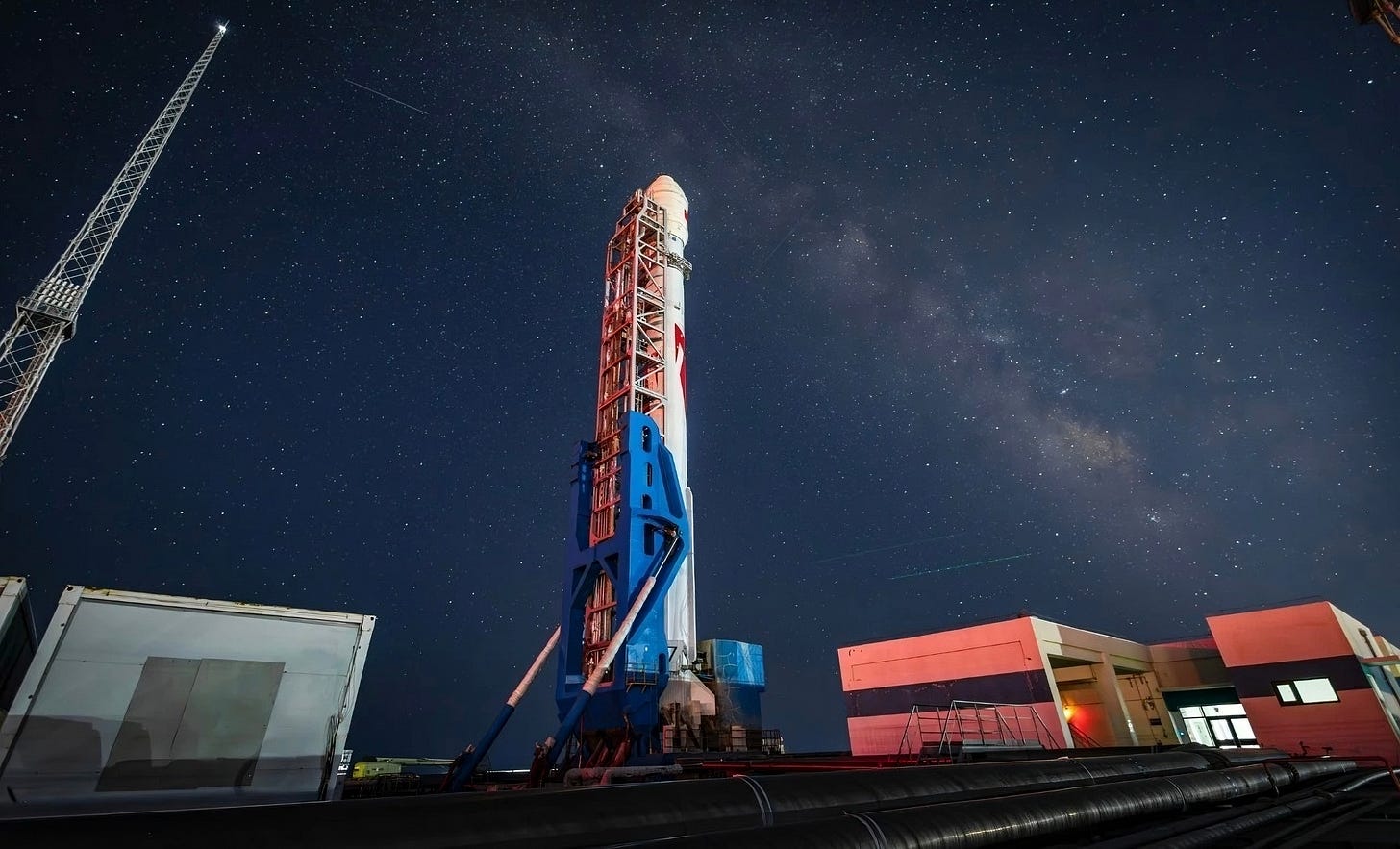LandSpace Discloses Cause of Zhuque-2E Failure
Electrical issues prevented the rocket from reaching orbit.
Back on August 15th, LandSpace attempted to fly its third Zhuque-2E rocket to low Earth orbit, carrying payloads for a customer that remains confidential. During the launch, Zhuque-2E suffered its first in-flight anomaly.
Yesterday, the company concluded its post-flight anomaly investigation and disclosed the cause of the failure. According to LandSpace, at T+4:18 the rocket’s second-stage suffered from an electrical arc from its 450-Volt DC main power cable, shorting out control units for the stage, likely also leading to a loss of control to gimbal the TQ-15A engine. Due to the short, the rocket’s flight termination system was activated, and the second-stage was detonated along with its payloads.
LandSpace’s full statement on the cause of the anomaly is as follows:
“On the afternoon of August 30, 2025, LandSpace convened a failure review board meeting for the Zhuque-2 Enhanced Y3 launch vehicle flight anomaly. Following expert panel questioning and deliberation, the board unanimously concluded that: the root cause was accurately identified, the failure mechanism was clearly understood, fault reproduction was successfully completed, corrective measures are effective, and comprehensive lessons learned were applied, thereby clearing the anomaly for closure.”
“The Zhuque-2E Y3 launch vehicle lifted off at 9:17 AM on August 15, 2025, from the Dongfeng Commercial Space Innovation Test Zone. The rocket's first-stage flight was normal, first-second stage separation was normal, and after second-stage ignition, all systems worked normally with normal fairing separation. At 258 seconds after liftoff, the second-stage servo power bus voltage abnormally dropped, causing rocket attitude instability. The onboard autonomous safety control system implemented self-destruction, resulting in flight test mission failure.”
“After the failure occurred, the company immediately established a zero-defect working group to conduct detailed analysis and investigation of the Y3 flight test mission failure, organizing flight telemetry data analysis, test simulation, and fault investigation verification tests. The zero-defect process was completely transparent, leaving no risks or doubts, and throughout the process, progress reports were continuously provided to supervisory management units, mission customers, and important stakeholders.”
“Through flight telemetry data analysis, detailed simulation calculations, and rigorous fault investigation tests, the Zhuque-2E Y3 flight failure was attributed to arc discharge short-circuiting in the second-stage actuator circuit driver's high-power 450V DC power bus under the low atmospheric pressure environment during second-stage flight, leading to control actuator failure and resulting in flight failure.”
“LandSpace will deeply learn from the lessons of this flight failure and use this as an opportunity to further implement a series of control measures, strengthen risk process management, enhance research and production quality process control of outsourced products, further improve the company's model mission launch and flight reliability, and fully ensure the success of subsequent missions.”
“We sincerely thank all levels of supervisory departments, mission customers, partners, and friends from all walks of life who have long cared for and supported the company's development! At the same time, we express sincere respect to the expert teams and all employees who made diligent efforts in this zero-defect process. It is precisely the trust and support from all parties that enables the company to accumulate experience in setbacks and continue growing through summary. LandSpace will continue to uphold the concept of ‘quality first’ and work hand in hand with partners to move toward the complete success of subsequent missions with more solid steps.”
If there are any problems with this translation please reach out and correct me.
Zhuque-2E’s failure is very similar to one that Rocket Lab’s Electron suffered from in September 2023. After Rocket Lab’s anomaly investigation, it was said that the failure scenario was extremely difficult to replicate during ground testing, although Electron uses electric turbopumps and hot-swaps batteries during flight.
This year, it was hoped that four more Zhuque-2E’s could fly, as in February, LandSpace said they were hoping to fly the vehicle six times in 2025. Hardware for those flights has been flowing from the company’s production facilities to Jiuquan, with some inspected or sent back to the factory for the anomaly investigation.
In the coming weeks, LandSpace is set to debut its two-stage partially reusable Zhuque-3 rocket, which also uses the TQ-15A engine on its second-stage. That flight may happen in September or November, with hardware almost ready to fly (possibly having been held up due to the recent failure).



